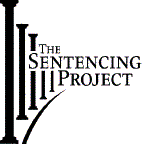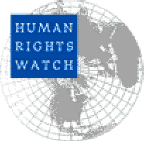 |
 |
The Impact of Felony Disenfranchisement Laws in the United States
|
The right to vote freely for the candidate
of oneís choice is of the essence of a democratic society, and any restrictions
on that right strike at the heart of representative government.
Reynolds v. Sims, 377 U.S. 533 (1964)
Without a vote, a voice, I am a ghost inhabiting
a citizenís space...I want to walk calmly into a polling place with other
citizens, to carry my placid ballot into the booth, check off my choices,
then drop my conscience in the common box.
Joe Loya, disenfranchised ex-felon
Our democracy is weakened when one sector
of the population is blocked out of the voting process.
Rep. John Conyers, Jr., U.S. Congress
An eighteen-year-old first-time offender
who trades a guilty plea for a nonprison sentence may unwittingly sacrifice
forever his right to vote.
Andrew Shapiro, attorney
This report was written by Jamie Fellner, associate counsel of Human Rights Watch and Marc Mauer, assistant director of The Sentencing Project. Paul Hirschfield, a research associate of The Sentencing Project, conducted the principal data analysis. Mareke Aden, a Human Rights Watch intern, provided research assistance and Christina Portillo, a program associate of Human Rights Watch, also provided research and production assistance.
The Sentencing Project
The Sentencing Project is a national non-profit
organization which promotes sentencing reform and conducts research on
criminal justice issues. Research and preparation of this report was supported
by grants from the Center on Crime, Communities, and Culture of the Open
Society Institute, Public Welfare Foundation, and John D. and Catherine
T. MacArthur Foundation.
Human Rights Watch
Human Rights Watch is a U.S.-based nongovernmental
organization that monitors and promotes the observance of internationally
recognized human rights in Africa, the Americas, Asia, the Middle East
and Europe. Research and production of this report was supported by the
Open Society Institute.
Copyright © 1998 Human Rights Watch and The Sentencing Project
For further information, contact:
The Sentencing Project
918 F Street, N.W., Suite 501
Washington, D.C. 20004
(202) 628-0871
http://www.sentencingproject.org
Human Rights Watch
350 Fifth Avenue, 34th Floor
New York, NY 10018
(212) 290-4700
http://www.hrw.org
Table of Contents
II. FELONY DISENFRANCHISEMENT IN THE UNITED STATES
III. CURRENT IMPACT OF DISENFRANCHISEMENT LAWS
IV. CRIME, CRIMINAL JUSTICE POLICIES AND INCARCERATION
V. DISENFRANCHISEMENT LAWS CANNOT BE JUSTIFIED
VI. DISENFRANCHISEMENT IN OTHER COUNTRIES
VII. CONSTITUTIONALITY OF CRIMINAL DISENFRANCHISEMENT
VIII. U.S. CRIMINAL DISENFRANCHISEMENT UNDER INTERNATIONAL HUMAN RIGHTS LAW
IX. CONCLUSIONS AND RECOMMENDATIONS

